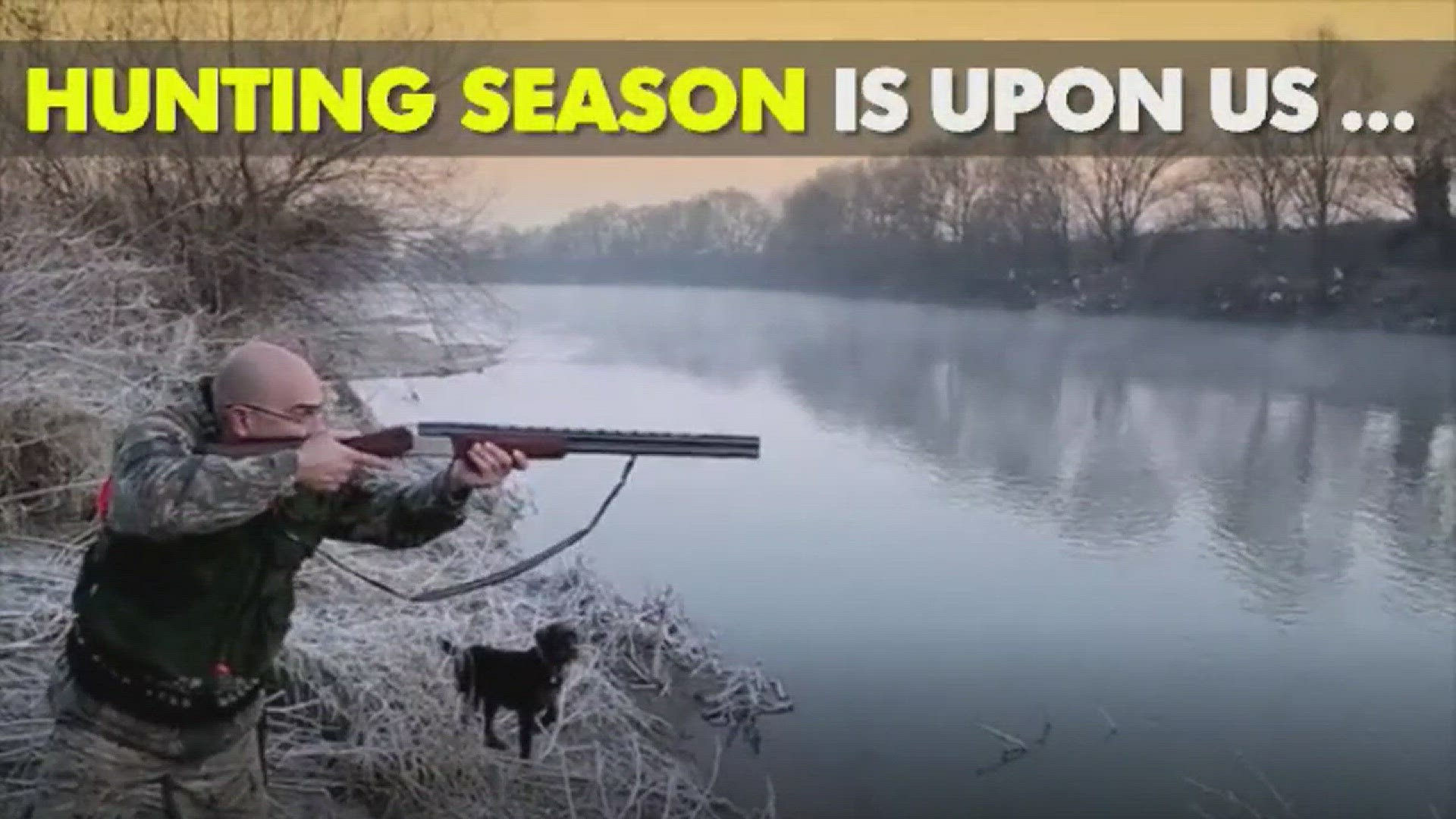Fall hunting season is approaching quickly and Michigan offers millions of acres of public land to explore.
Boasting nearly 10 million public acres, the Great Lakes state also ranks among the nation's best for hunters' success rates for many species.
If you're new to the field, here's a look at the most popular hunted species, including when and where you'll have the most success, according to the Pure Michigan Travel Guide.
You can find a map of Michigan's land that is open to public hunting here.
White-tailed deer
Hot dates: Nov. 15-30. Hot spot: Northern Lower Peninsula: Gladwin to Atlanta.
If you're planning to hunt antlerless white-tailed deer this season, you should have applied for an application by Aug. 15. A drawing for those licenses will be held on Aug. 28. If any leftover licenses are available, they can be purchased beginning Sept. 5 at 10 a.m. Quotas are available at mi.gov/deer.
►PDF: Everything you need to know about hunting antlerless deer in Michigan![]()
Canada Goose
Hot dates: November and early December in southern Michigan. Hot spot: Fennville Farm Unit of the Allegan State Game Area, about 50 miles southwest of Grand Rapids.
Giant Canada geese nest in every Michigan county, but are most common (80% of population) in the southern third of the state. Often regarded as pests, Canada Geese are big waterbirds with long necks, large bodies and large webbed feet. The annual Michigan Waterfowl Hunting Guide contains season dates and bag limits, but be sure to check local township firearm ordinances before hunting geese in suburban settings. The application for a reserved hunt at a Managed Waterfowl Hunt Area runs from Aug. 1-28.
►PDF: Everything you need to know about hunting waterfowl in Michigan![]()
Ruffed Grouse
Hot dates: Early October in the south; late October in the north. Hot spot: The U.P. Felch to Ontonagon.
According to the Ruffed Grouse Society, hunting wild birds such as ruffed grouse can be especially difficult for a beginner. This small game is a hearty, snow-loving, bud-eating native which thrives during severe winters. Never heard the sound of a ruffed grouse? Click here to hear the sound of one drumming. Open season on Ruffed Grouse runs from Sept. 15 to Nov. 14 and Dec. 1 to Jan. 1.
Hot dates: Late September in southern Michigan; early October in northern Michigan. Hot spot: Northern lower peninsula: Houghton Lake to Wolverine.
The state of Michigan ranks No. 1 in the country for its American woodcock harvest.They are hunted statewide during the season, which runs from Sept. 3 to Nov. 6. A free woodcock stamp is required and available here online. In northern Michigan's Benzie County, woodcock hunters will find plenty of public land with the spectacular fall colors in full bloom.
Pheasant
Hot dates: Late October and all of December. Hot spot: The Thumb, Verona to Saginaw
The hunting of male pheasants in lower Michigan opens on Oct. 20 and runs to Nov. 14. In the highlighted portion of the map below, pheasant hunting opens again from Dec. 1 to Jan. 1. In addition to the Verona State Game Area (in Huron County), hunters should also consider mid-Michigan. The lands around the Maple River game area in Clinton, Gratiot and Ionia counties offer great parcels for pheasant hunting.
Hot dates: October through early November. Hot spot: Harsen's Island Unit, St. Clair Flats State Wildlife Area, about 50 miles northeast of Detroit.
If it's waterfowl you're searching for, you won't run short on opportunities in Michigan. The state has thousands of lakes with public access, but every year die-hard hunters will flock to Michigan's Wetland Wonders. These consist of seven managed waterfowl hunting areas, all in lower Michigan. They include: Nayanquing Point, Fish Point, Shiawassee River, Harsens Island, Pointe Mouillee, Muskegon County Wastewater and Fennville Farm Unit.
To hunt migratory waterfowl in Michigan, hunters age 16 and up need a base license, a waterfowl license and a Federal Migratory Bird Hunting Stamp.
►PDF: Everything you need to know about waterfowl hunting in Michigan
Base licenses
A base license is required for anyone that hunts in Michigan. Hunters are encouraged to carry their base license at all times while hunting, according to the Michigan DNR. With the exception of the non-resident seven-day small game license, the base license must be purchased before buying any other licenses.
Prices are as listed:
Junior: $6.00
Resident: $11.00
Nonresident: $151.00
Senior (65+, Michigan residents only): $5.00
All license prices can be found here.
►Make it easy to keep up to date with more stories like this. Download the WZZM 13 app now.
Have a news tip? Email news@wzzm13.com, visit our Facebook page or Twitter.

